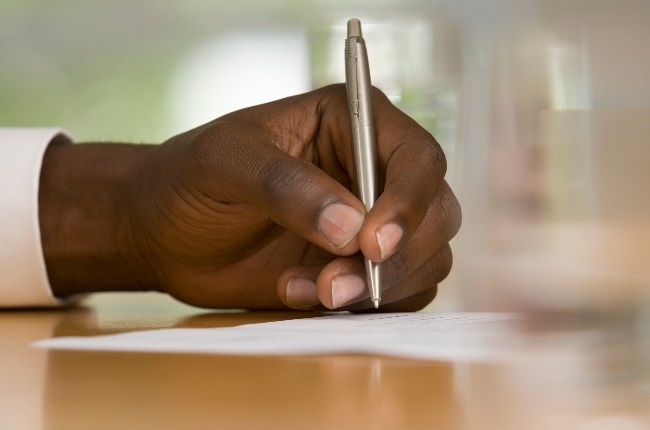
You have found the perfect property and you have signed an offer to purchase but you do not have the money to pay out of pocket, now what?
Well, you need to get financing from one of the banks and this is where bond originators come in.
“They approach the different banks on your behalf, and they make applications for the finance," explains attorney Penny Chenery. "Some estate agents have inhouse bond originators. The bank that will ultimately finance you is the one that will pay the bond originator’s fees.”
The bank then registers a mortgage bond to secure the loan. “When the bank is financing you, they will tell you what percentage of the purchase price they will cover. If is going to a 100% bond, then you do not need to pay anything in cash towards the purchase price.”
She says any amount of money you have can be used towards a deposit.
Read more | Property buying 101 | Skip the lawyers – can you register a property yourself?
“In 20 years, you end up paying the initial amount you borrowed and interest which can almost add up to the initial amount borrowed. So, any money you have can go a long way,” she says.
Another attorney, Ayanda Gwabeni agrees. “When they say you have a 100% bond it means the bank is paying 100% of the purchase price. If it is anything less, then you will have to pay that deposit out of pocket,” he says.
Penny says in today’s difficult economy, very few buyers have the capacity to purchase immovable property with a full cash payment. As such, they have to take a mortgage bond out on the property from a bank.
“Generally, this entails the purchaser placing a deposit down on the property, about 10-20% of the property value. The bank would then pay the outstanding balance in exchange for being able to register a bond against the title deed of the property. The purchaser then needs to pay the bank back the money borrowed through a series of monthly instalments over a predetermined period of time, usually 20 years. The bank in turn charges compounding interest on the outstanding amount, typically 7,5%, in order to profit from this exchange.”
Penny gives a breakdown using an R800 000 property as an example. Presume, she says, the buyer puts down a 20% deposit on the property, in the amount of R160 000. The outstanding balance would be R640 000 and, as such, the purchaser would have to register a bond over their property in order to get this amount from their bank in the form of a loan.
Read more | Property buying 101 | Between you as the buyer and the seller, who pays for what and when?
“Now that you have secured and registered a bond, paid the transfer costs and the property is finally registered in your name, you have to start paying your monthly instalments to the bond holder. This amount varies based on three factors: the capital loan amount, the interest rate on the loan and the period that the loan has to be paid back after.”
For the purposes of this article, these calculations will be based off of a R640 000 loan and a 100% R800 000 loan, with the interest rate and time period for both of them being 7.5% and 20 years respectively.
A R640 000 bond will have a monthly repayment of R 5 155.
An R800 000 bond will have a monthly repayment of R 6 444.
"The bank’s lending policy changes from time to time depending on the economic environment, this means the criteria for qualifying for a 100% home loan can also change," FNB Home Finance Growth Head Mfundo Mabaso says. In order to qualify for a 100% loan, he says, these are the factors taken into account by the bank:
- Great credit record
By having a great credit record we mean an individual should pay their credit providers timeously. Missing one payment does not necessarily mean that you will be disqualified but what it may mean is that if the bank can only approve 5 applications for 100% home loan, and there are 10 applicants where 6 of them have a great credit record and the rest have missed at most one payment, the chances of the applicants with the missed payment getting approved for 100% lending has been reduced.
- Affordability
After assessing the client’s income and expenses, the bank needs to ensure that the client has enough disposable income (disposable income = net income – all current expenses) to pay for the home loan repayment.
- Value in the property
The property being purchased should provide sufficient security in the loan. In the event that the client can no longer pay for the property and the bank and the client cannot find a solution that will keep the client in the property, the bank will then have to sell the property so that it can get back the funds it loaned the client. It is for this purpose that the bank want to loan funds on a property that they know will insure their loaned out funds.
- First time home buyer
The bank leans more towards offering first time home buyers 100% offering as a form of assistance compared to clients that have owned a home before.
In some instances, the bank may even lend clients more than 100%. "The bank uses a similar criteria to the one used to issue a 100% home loan," Mfundo says.
"The difference for the 100%+ is that the bank can only extend this offering to a smaller pool of clients, so where the client banks can be an additional criteria that is used to limit the number of clients. With the bank opting to only offer it to its own banked client."
Additional reporting by Thando Ndabezitha



















